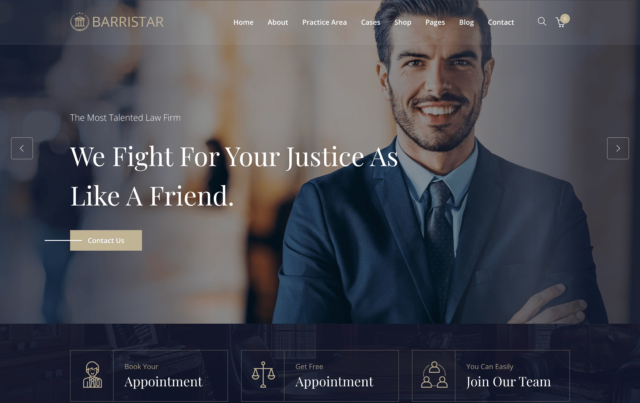Read for more information on the rules for online advertising for Pennsylvania attorneys
Pennsylvania Attorney Advertising Rules: Comprehensive Guidelines
Attorneys practicing in Pennsylvania must adhere to specific advertising regulations outlined in the Pennsylvania Rules of Professional Conduct. These rules ensure that legal advertising is truthful, non-misleading, and upholds the profession’s integrity. Below is an overview of the key provisions governing attorney advertising in Pennsylvania, with references to specific rules.
Rule 7.1: Communications Concerning a Lawyer’s Services
- Prohibition of False or Misleading Statements:
- Attorneys must not make false or misleading communications about their services.
- A communication is considered false or misleading if it contains a material misrepresentation of fact or law, or omits information that makes the statement as a whole misleading.
- Unjustified Expectations:
- Lawyers should avoid statements that create unjustified expectations about the results they can achieve.
- Comparisons with other lawyers’ services are prohibited unless they can be factually substantiated.
Rule 7.2: Advertising
- Permissible Advertising Methods:
- Lawyers may advertise their services through written, recorded, or electronic communication, including public media.
- All advertisements must comply with Rule 7.1.
- Payment for Recommendations:
- Attorneys are prohibited from giving anything of value to a person for recommending their services, except for:
- Paying reasonable costs of permitted advertisements.
- Paying usual charges of a legal service plan or a not-for-profit lawyer referral service.
- Paying for a law practice in accordance with Rule 1.17.
- Entering into reciprocal referral agreements that are not exclusive and where the client is informed of the agreement’s nature.
- Attorneys are prohibited from giving anything of value to a person for recommending their services, except for:
- Mandatory Inclusion of Office Address:
- All advertisements must include the name and office address of at least one lawyer or law firm responsible for its content.
Rule 7.3: Solicitation of Clients
- Direct Contact with Prospective Clients:
- Lawyers must not solicit professional employment through live person-to-person contact when a significant motive is the lawyer’s pecuniary gain, unless the contact is with:
- Another lawyer.
- A person with whom the lawyer has a family, close personal, or prior professional relationship.
- Lawyers must not solicit professional employment through live person-to-person contact when a significant motive is the lawyer’s pecuniary gain, unless the contact is with:
- Written, Recorded, or Electronic Solicitation:
- Such communications are permitted but must include the words “Advertising Material” at the beginning and end of the communication, unless the recipient is:
- A lawyer.
- A person with a prior professional relationship with the lawyer.
- Such communications are permitted but must include the words “Advertising Material” at the beginning and end of the communication, unless the recipient is:
- Prohibited Solicitations:
- Solicitation is prohibited if:
- The prospective client has expressed a desire not to be solicited.
- The solicitation involves coercion, duress, or harassment.
- Solicitation is prohibited if:
Rule 7.4: Communication of Fields of Practice and Specialization
- Stating Practice Areas:
- Lawyers may communicate the areas of law in which they practice.
- Claims of Specialization:
- Lawyers must not state or imply they are certified as a specialist in a particular field of law, except:
- If they have been certified by an organization approved by an appropriate authority.
- The certifying organization’s name is clearly identified in the communication.
- Lawyers must not state or imply they are certified as a specialist in a particular field of law, except:
Rule 7.5: Firm Names and Letterheads
- Use of Firm Names:
- Firm names, letterheads, and other professional designations must not be misleading.
- Trade Names:
- Use of trade names is permissible if they do not imply a connection with a government agency or charitable organization and are not otherwise misleading.
- Identification of Jurisdictional Limitations:
- If a firm operates in multiple jurisdictions, any jurisdictional limitations of lawyers not licensed to practice in a particular jurisdiction must be indicated.
Additional Considerations
- Retention of Advertising Materials:
- Lawyers are encouraged to retain copies of advertisements for a reasonable period to demonstrate compliance with ethical rules.
- Use of Nonlawyer Spokespersons:
- Attorneys may use nonlawyer spokespersons in advertisements, provided the spokesperson’s statements are not misleading and comply with all advertising rules.
- Advertising Language Proficiency:
- If an attorney advertises the ability to communicate in a foreign language, they must specify whether the attorney or a nonlawyer employee possesses this ability.
- Internet and Electronic Advertising:
- The Pennsylvania Rules of Professional Conduct apply to all forms of advertising, including those on the Internet and private online services.
- Payment for Recommendations:
- Attorneys are prohibited from giving anything of value to a person for recommending the lawyer’s services.
- Compliance and Enforcement:
- Non-compliance with advertising rules can result in disciplinary actions by the Pennsylvania State Bar.
- Seeking Guidance:
- For clarification or guidance on specific advertising practices, attorneys can consult the Office of General Counsel or refer to formal opinions issued by the Pennsylvania State Bar.
Adhering to the Pennsylvania Rules of Professional Conduct regarding attorney advertising is essential for maintaining the integrity of the legal profession and protecting the public from misleading or unethical practices.
Our marketing packages include the following
Search Engine Optimization
Paid Search Management
Legal Content Development
Website Design
Live Chat
Social Media Management









